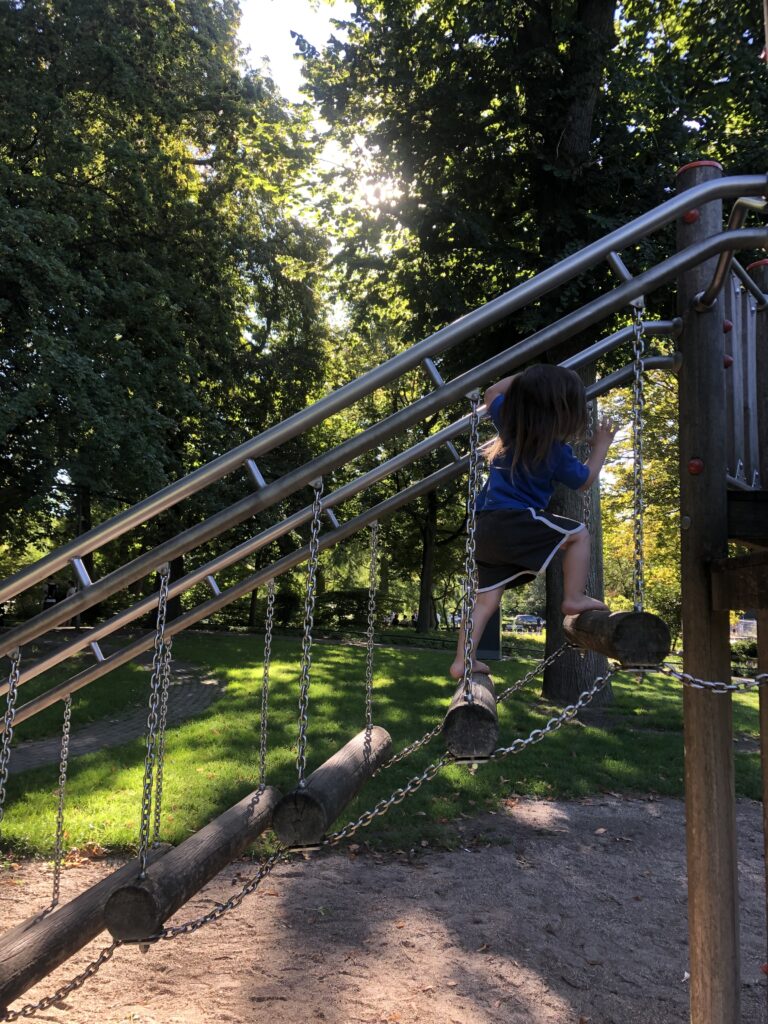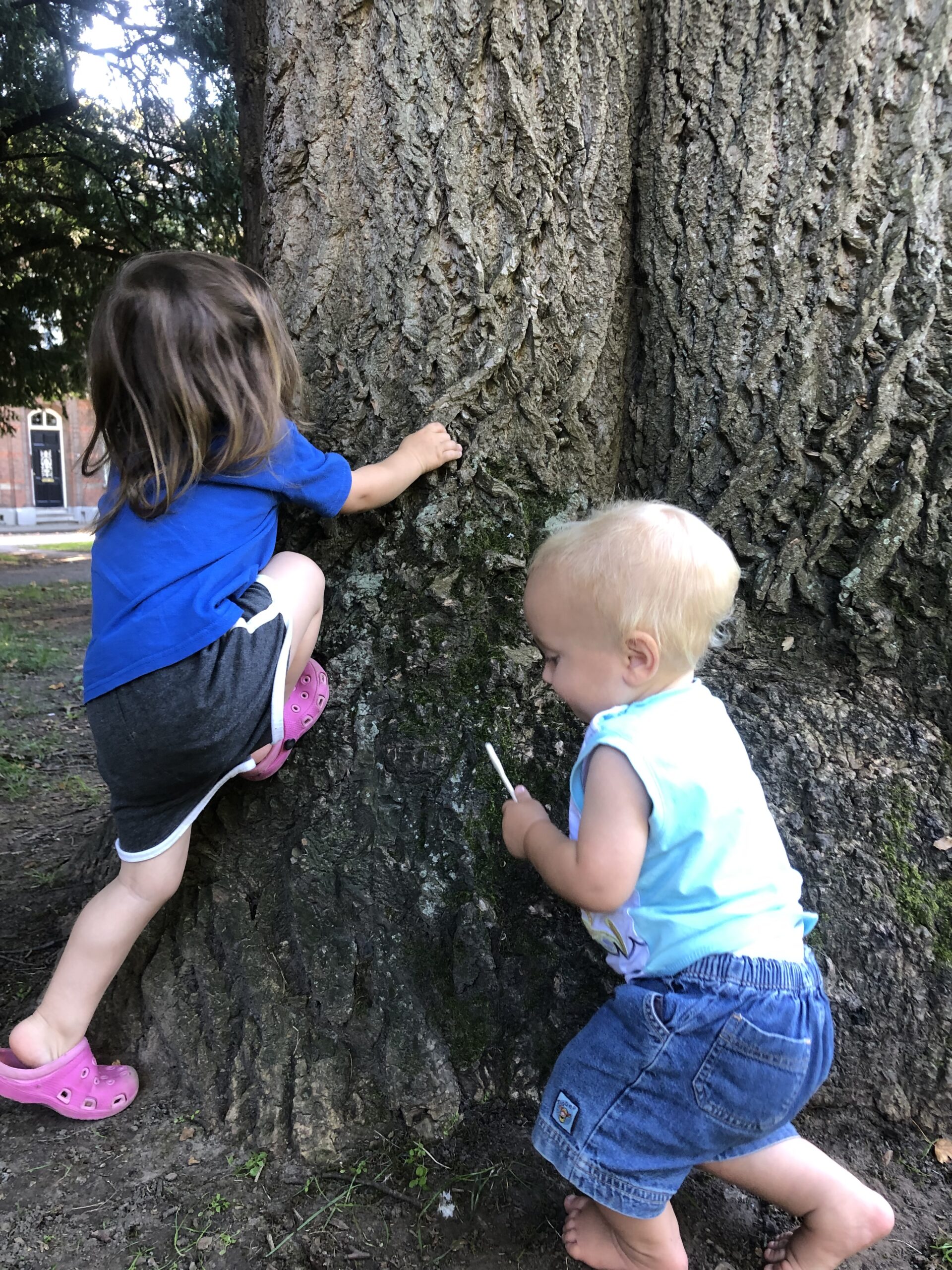15 Tips for Parenting a Highly Sensitive Child on a Family Holiday
Understanding your highly sensitive child is a complex journey. Our older son is deep into toddlerhood. We have first-hand experience of this. Family holidays can present unique challenges with a highly sensitive child. We didn’t realize it before, but became sort of experts the last weeks.
Recently we celebrated our toddler boy’s birthday in Düsseldorf. The day was a resounding success, but as bedtime approached, a major meltdown ensued. “I want to go home!” he cried. We tried recounting all the wonderful moments of the day, his eyes shining with excitement. Yet he circled back to that same plea. As a parent, it was disheartening and quite triggering.
Then a memory flashed into my mind of a night in Morocco in a mountain shelter. Having just conquered the Atlas Mountains’ highest peak, I was so proud of myself. It was a feat against all odds given my recent recovery from a chest infection and a near-serious accident. That night, surrounded by snoring mountain climbers, I wept myself into slumber. This made me realize that it can all be there. The excitement and pride. The pain and sadness of overwhelm.

Reconnecting with your own moments of vulnerability is key in understanding your highly sensitive child. That climb for me was transformative. I will tell you more about it later, how it fundamentally changed my life.
In this guide, we’ll explore tips for parenting a highly sensitive child during family vacations. We learned it the hard way, but it was worth it. We all had a wonderful time and I hope these tips will help you to enjoy your own family vacation to the fullest.
Understanding your highly sensitive child is not just a challenge. It’s an opportunity for growth and deeper connection.
1. Accept Regressions
Highly sensitive children may communicate their need for extra care through regressions, especially if they have a younger sibling. Suddenly, they stop putting on their shoes or clothes themselves, and they want to be picked up more often etc. These are early signs of overwhelm, and if we can recognize them as such, it can be a huge support for highly sensitive children.
2. Give Them Time
Highly sensitive children need time to observe an unfamiliar surrounding and acclimate to new environments. The first time we went to swim at the amazing lake of Amici Beach, our son refused to come out of the bike trailer. The second day he got into his swimming ring and swam around the whole lake. This doesn’t make much sense to our adult brains and can be frustrating sometimes. When you understand they simply need more time, it becomes much easier to relax and let it go. Encourage them to explore at their own pace, building their confidence in the process.
3. Prioritize Downtime and Extra Rest
Traveling and new surroundings are extra tiring for highly sensitive children. Schedule regular breaks to allow for relaxation and rejuvenation. Don’t we all need that anyway when we are on holiday? It makes the holiday experience so much more enjoyable for everyone.
4. Unleash Energy through Physical Activity
When highly sensitive children get overwhelmed, their nervous system goes into fight or flight mode. Providing ample opportunities for physical exercise helps them to release pent-up energy and re-regulate their nervous system. Outdoor activities in a quiet surrounding are particularly helpful.
5. Nature Therapy
I think we have all experienced how healing it can be for our nervous system to spend time in nature. A new environment can be challenging for highly sensitive children, but the adaptation goes much faster in peaceful, natural surroundings.
6. Embrace Simplicity
Less is more. Keep activities and outings simple. Schedule fewer activities than you would normally do. This is helpful to prevent sensory overload. Quality experiences outweigh quantity and make the holiday more enjoyable for everyone.
7. Don’t Take It Personally!
See your child’s reactions and meltdowns for what they are: their immature nervous system trying to process a bunch of new stimuli. It’s not a reflection of your parenting. Highly sensitive children process everything deeper. They are trying to cope with new situations and regulate their nervous system. Understanding this is key to a harmonious vacation.
8. Follow Your Joy!
It’s important to consider the above points, but please remember that it’s your well-earned holiday after all. Plan activities you love while respecting your child’s pace. Let them be and invite them to join in when they feel ready and comfortable with it. Allow them the space to observe and acclimate.
9. Recognize Their Safe Spot
It is important to provide children with a safe space where they can retreat if they feel overwhelmed. For our son, it is either the bike trailer or the carrier. Having a safe spot offers a sense of security and control in a situation that may feel totally out of control for them. It is a place that gives them the opportunity to observe, relax, recuperate and gather the confidence to explore when they feel ready to do so.
10. Choose Quiet Times for Outings
Schedule activities during off-peak hours to avoid crowded and noisy environments. This makes the experience more relaxed and reduces sensory overload.
11. Be Prepared
Break down the day’s plans in a clear and understandable manner. Look at photos if possible of the places you are going to visit so they have an idea about what to expect. Give your child the opportunity to make choices, providing them with a sense of control and confidence.
12. Pack Familiar Snacks for Comfort
I don’t know about you, but if I have a meltdown, looking back, 9 out of 10 times I recognize that it was because I didn’t eat. When we are hungry, our nervous system goes so much easier into fight or flight survival mode. Bring along their favorite snacks to provide a sense of familiarity. It’s such a simple way to reduce the likelihood of meltdowns due to hunger or unfamiliar food.
13. Preserve Family Rituals
We have simple rituals around giving thanks before eating a meal or recounting our favorite happenings of the day. I didn’t realize it until our vacation how important these simple rituals are for our son to feel grounded and secure. Stick to familiar routines and traditions even while on vacation. It’s really very helpful.
14. Embrace and Validate Your Child’s Emotions
Meltdowns happen whether your child is highly sensitive or not. But they blow over so much more easily if our children feel heard and seen. Try to put yourself in their shoes. Think back to memories from your own childhood or moments of struggles. “I understand that you are scared. I used to find that very scary too.” Or “It is indeed very loud here. I don’t like that either.” This helps your child feel seen, understood, and most importantly, safe. When we feel safe, our nervous system can come back to balance more easily.
15. Go with the Flow
Be ready to adapt plans if needed. Enjoying the moment and ‘what is’ is more important than sticking to pre-made plans that may not suit your child’s current state.
Some final tips for Parenting a Highly Sensitive Child
As parents, it’s crucial to remember that our primary task is not to protect our children from all adversity and difficult situations. Our task is to be there for them and empower them, so they feel strong and capable.
That overwhelming mountain climb in Morocco was a turning point in my life. It empowered me to make positive changes that actually eventually led me to meet my husband. I discovered that if I could conquer that mountain, I could conquer anything.
However scary and overwhelming our son found noisy railway stations, unfamiliar streets or sleeping in a tent for the fist time, he did it! He returned from our holiday with newfound confidence, and his anxiety significantly decreased.

It is important to expose our highly sensitive child to new experiences. Embrace these opportunities to nurture their growth and resilience. Your child’s unique sensitivity is a gift, and with your support, they can thrive in the world.
Have you had similar experiences with your highly sensitive child? How have you empowered them to face their fears and uncertainties? Share your insights and stories. Your wisdom and support can make a world of difference to parents navigating the journey of supporting and understanding their highly sensitive children.
Much Love,
Orsi


